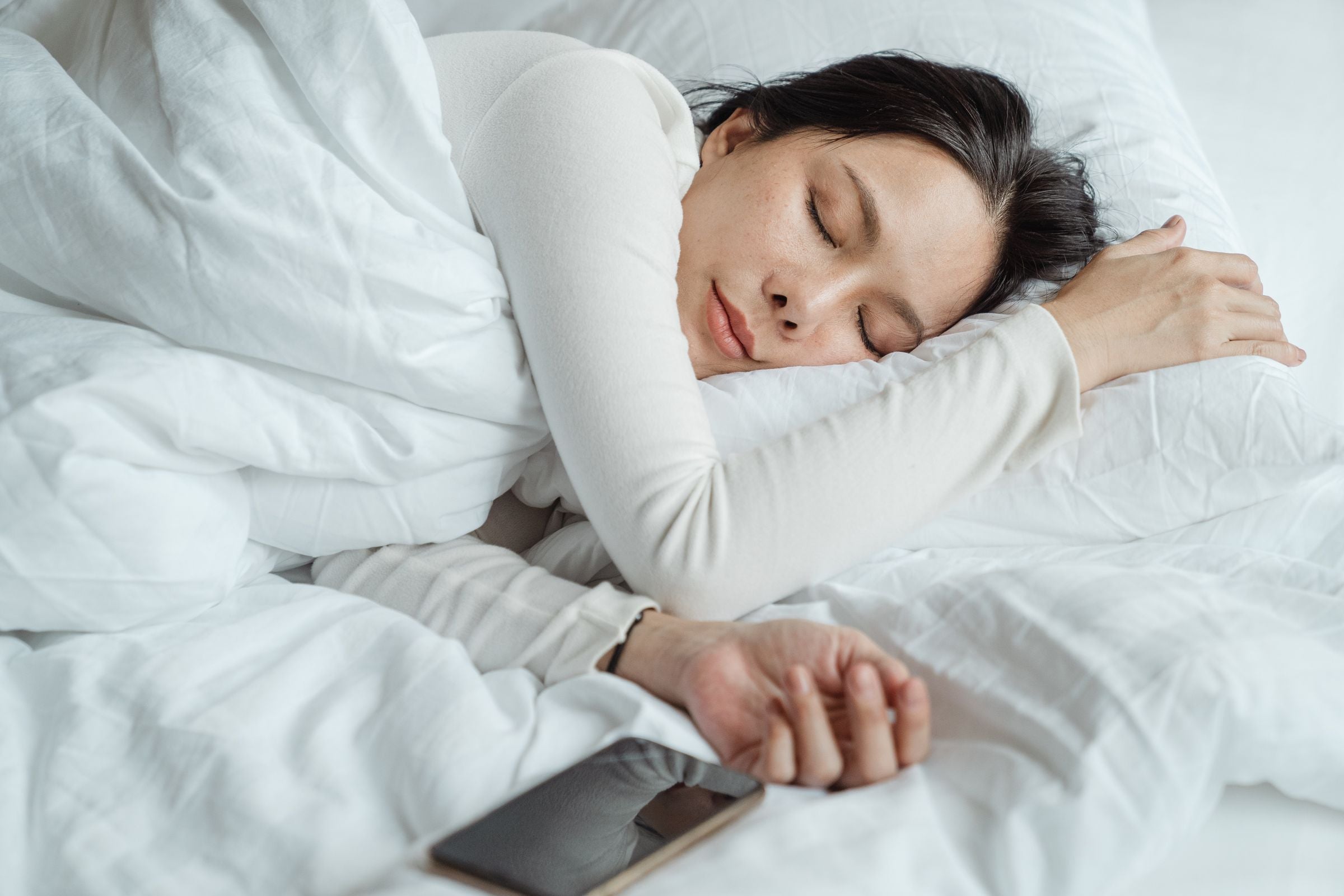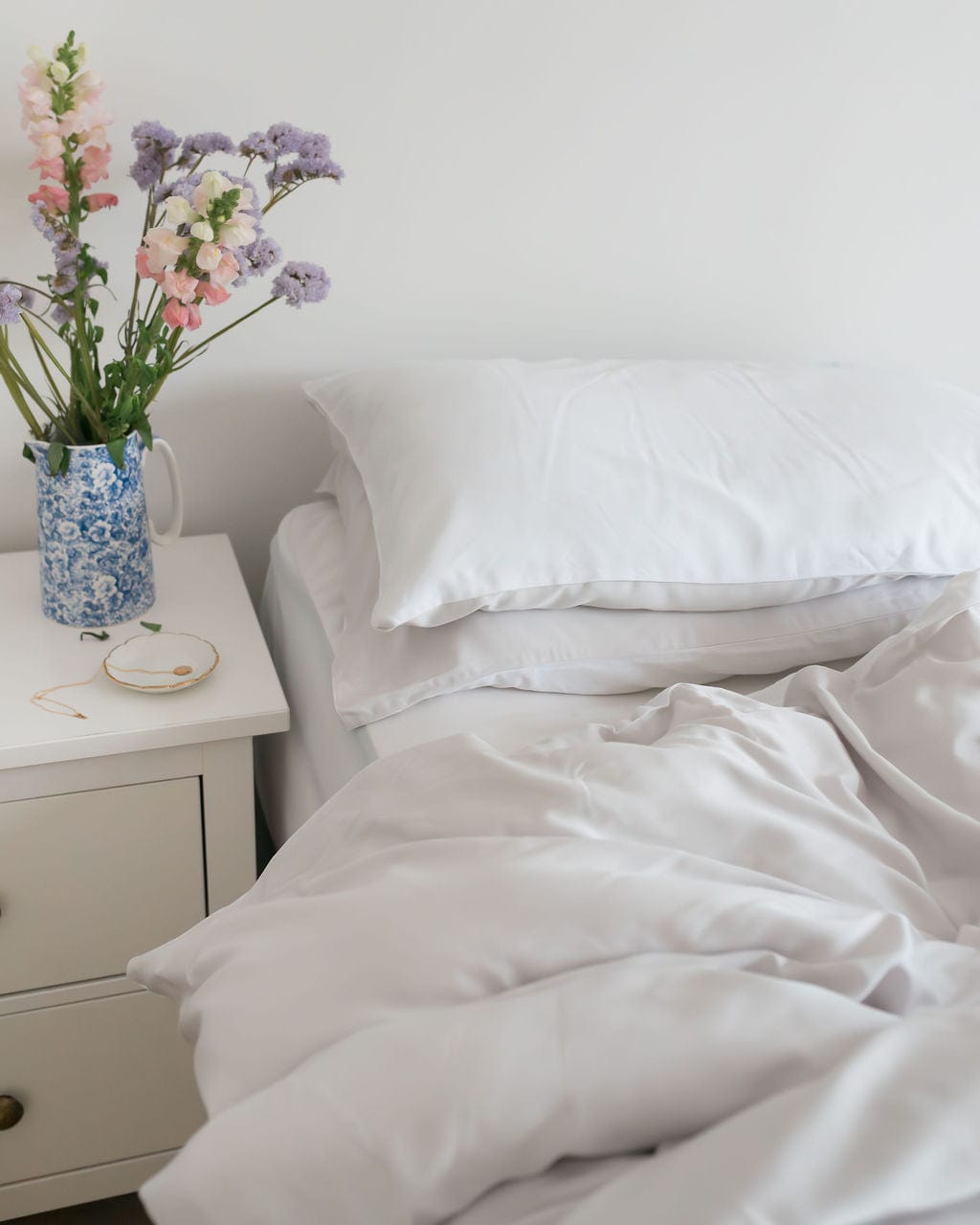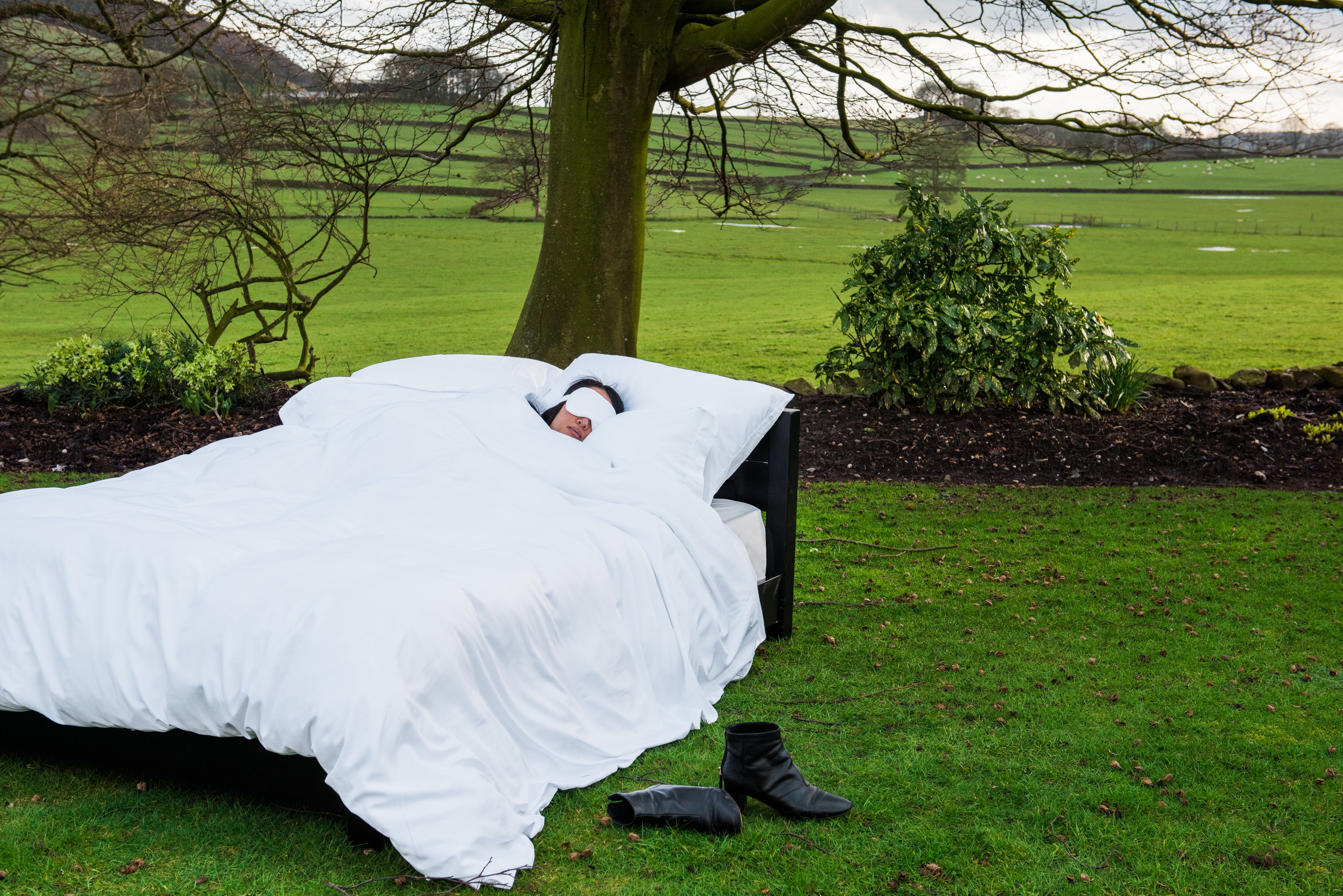
How To Implement and Improve Your Sleep Hygiene

Have you heard of sleep hygiene? It can really help with consistently getting a good night’s sleep. If your sleep habits and routines aren’t up to scratch, don’t fret. We’ve put together this handy guide to sleep hygiene to help you sleep better.
What is sleep hygiene?
Contrary to the name, sleep hygiene has nothing to do with cleanliness! It’s actually all about having good sleep habits.
If you have poor sleep hygiene, it’s likely that you’ll struggle to fall asleep and, when you do sleep, it’s disturbed throughout the night.
How can you increase your sleep hygiene?
Here are 8 ways that you can improve your sleep hygiene. If you implement them, you may notice that you fall asleep quicker and you get a better, less disturbed sleep during the night.
Create a routine
If you don’t yet have a solid sleep schedule, setting one can make some big improvements. If you’re not sleeping properly, setting aside some time to create and implement a routine is really important.
It can be so easy to put our work and social lives before our sleep, or to stay up until the early hours watching Netflix, but cutting back on the non-essentials to make a bit of extra time for bed can go a long way.
Once you’ve decided how much sleep you need or can get each night (most adults need between 7-9 hours), work backwards from the time you need to wake up to find out what time you should be asleep by.
If you keep your routine as similar as possible each night, such as putting on your pyjamas, brushing your teeth, and getting into bed at more or less the same time, it can help your mind to register that it’s bedtime.
Put down your electronics
Stop using your electronic devices at least an hour before bedtime, whether that’s your laptop, mobile phone, video games, or tablet. Electronic devices stimulate your brain and can make it hard for you to switch off when you go to bed. They’re also known to produce blue light which can reduce your body’s production of melatonin (the ‘sleep hormone’).
Try not to nap
We all know how tempting an afternoon nap can be. And sometimes it’s fine to indulge in a nap once in a while. However, keep in mind that regular naps can wreak havoc on your sleeping pattern and avoiding them when possible is encouraged.
If you really do need to nap, which does happen, try to keep it to 30 minutes or less and aim to nap earlier in the day rather than the late afternoon or in the evening.
Wind down
Giving yourself around 30 minutes each night to wind down before bed can work wonders for your sleep. This should be a time for you, away from work emails and too much stimulation. Try meditating or reading a book to wind down.
Consider your setting
Most people sleep better when their bedroom is cool, quiet, and dark. In fact, it’s said that having your bedroom between 15.6°C and 19.4°C is the best temperature for most people.
Black out blinds/curtains and eye masks can really help if you sleep in a room where light creeps in and, if noise is a problem for you, ear plugs and white noise machines could be good options for you.
Avoid stimulants
Stimulants such as caffeine shouldn’t just be avoided before bed, its effects can last for around 3-7 hours. The effects of caffeine on your body will be personal to you so, if you’re particularly sensitive to it, you may need to cut off your caffeine intake much earlier than someone who isn’t.
Don’t lounge in bed
Your bed should be for sleep and intimacy only. It’s so tempting to do things like work, eat, and watch television in bed. However, if you only sleep and engage in intimacy in bed, it helps your brain to link sleep and bed, helping you get to sleep quicker when you go to bed.
Dim the lights
Being around bright lights can negatively affect your body’s production of melatonin. If you dim the lights or turn on a lamp when you’re winding down before bed, it can help you get into bedtime mode.
Get active
If you’re struggling to get to sleep, it may be because you’re not getting enough exercise during the day. Being active throughout the day, whether that’s a long walk, a run, going to the gym, or taking part in team sports can help.
However, try not to exercise for at least 2 hours before bed as it can make you feel really energised. If you’d like to do some exercise not long before bed, yoga and stretching can be good options.
The Lune Living bamboo bedding can enhance your sleep. It’s incredibly soft, comfortable, and breathable, making sure you don’t get too hot or cold. Plus, it’s much better for the Earth than cotton bedding. We offer bamboo bedding for both adults and children. Browse our collection.







